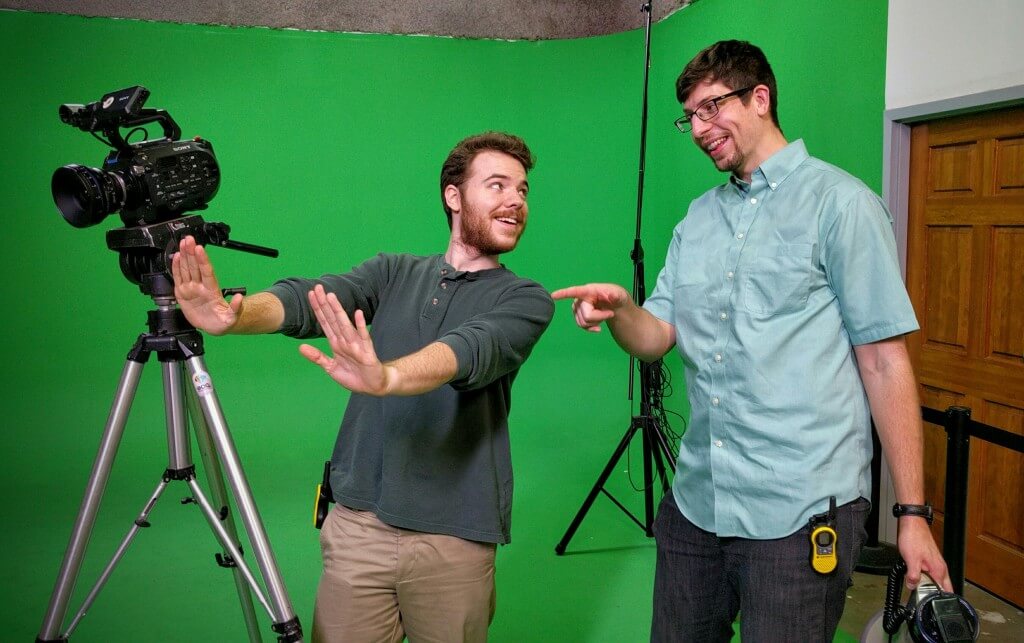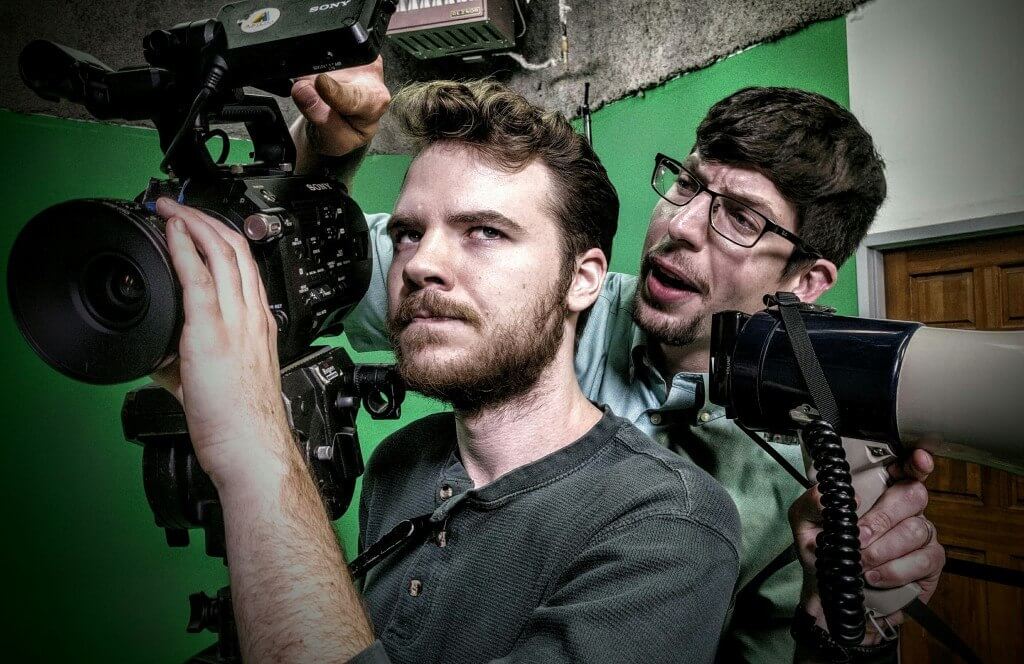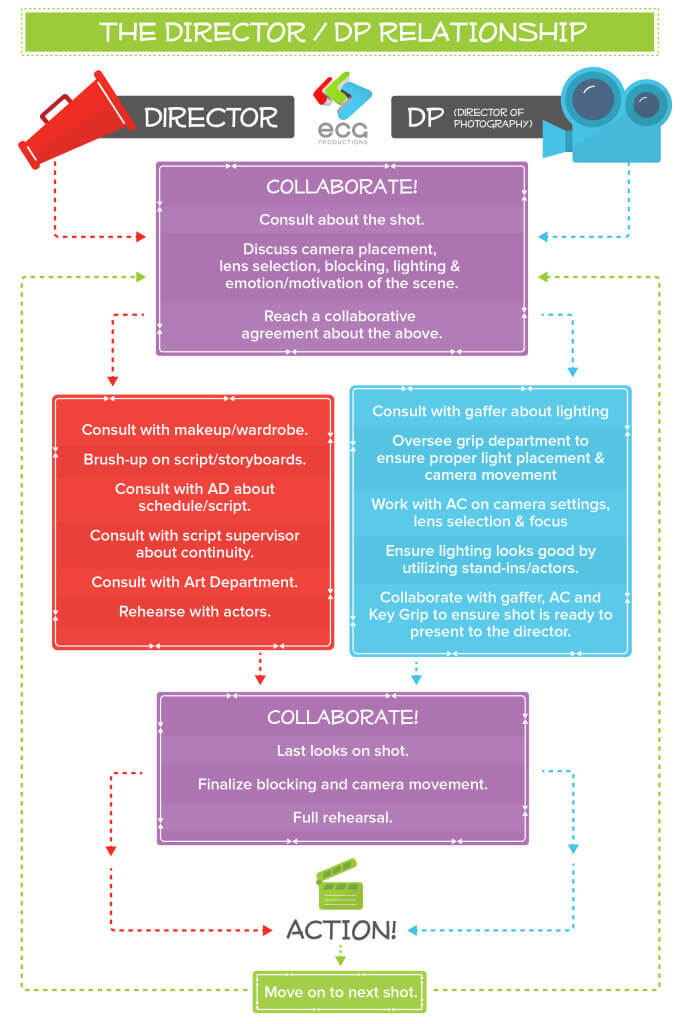Learning It The Hard Way
My first directing gig at ECG Productions was a “reality” TV show pilot that was totally scripted. During this shoot, everything that could go wrong did and it’s largely due to the fact that I was a rookie director. My DP and I had been clashing heads throughout the 3 day shoot. Fortunately for me, he was very forthright with me about the mistakes I was making. At first, I was offended and defensive. I thought, “how can a DP talk to me, THE DIRECTOR, in such a way? He’s totally disrespectful and overstepping his boundaries!” However, after further reflection, I realized that he was right. And now I’m very thankful to him for teaching me an extremely valuable lesson.
The Big Mistake
The major mistake I continued to make over and over on that shoot was that while he and his team were setting up a shot, I was looming over his shoulder to make sure everything was looking good and how I wanted it to look. The huge problem with this workflow is that by micromanaging him, I was being completely unproductive as a director. I would call out things that I noticed in the shot that I thought could use work while he was already intending to fix it. For example, if we were outside in the bright sun for an interview and it looked like the talent could use a silk overhead, I would be looking at the monitor and say “I think we could use a silk overhead.” This was hugely frustrating for my DP because he was already planning on doing so and having me tell him before he was able to address it was extremely irritating.
The Workflow Solution
After I had loomed over his shoulder and whispered instructions into his ear for several shots in a row, my DP finally had enough. He pulled me aside and said something like, “Why don’t you let me setup my shot, then when I’m ready, I’ll present it to you, and you can give me notes then. Besides, you’re the director and there’s a million other things you could be doing. Why don’t you go rehearse lines with your actors while I setup the shot?” This was the best piece of advice I could have received as a rookie director. Even though it was a tough pill to swallow, my DP was totally right.
Our workflow from then on was to quickly discuss the details of the shot together, then I would let my DP set it up while I rehearsed with the actors or conducted other director duties like checking with makeup and wardrobe, brushing up on the script and schedule, etc. Doing this afforded my DP and his camera department the opportunity to setup the shot in peace. I also believe that another positive side effect of this new found freedom was that it led to enhanced creativity in the camera department. Once my DP was happy with how the shot was looking, we got back together and made final tweaks to the shot, if necessary. At this point, the actors were rehearsed and ready, everybody knew what was going on, and we we were off to shooting without any drama; except for the manufactured drama of the “reality” TV show. From then on, the shoot ran smoothly and the drama was saved for what was happening in front of the camera.
The Director/DP Relationship

Since this experience, I have witnessed other directors fall into the trap of gazing into the monitor during setup and losing sight of being a productive director. I think it’s natural for a director to be curious about how the shot is being setup and to want to watch it come to life. It’s exciting to look into the monitor and witness the shot that you imagined being built before your eyes. However, watching the monitor while the shot is being setup is a deadly pitfall. As a director, you should be using this precious time to rehearse with your actors, work on the blocking of the scene, plan for the next shot, get another department started on something else, or do whatever you possibly can to stay one step ahead so you can get what you need and wrap on time.
Being a good director means trusting in your team by consulting with each department, giving them the freedom to do their work in peace, then giving everything last looks and final approval before calling action. If you can’t find anything productive to do during shot setup time, and you insist on watching the monitor so you can micromanage, then being a director probably isn’t your calling.


